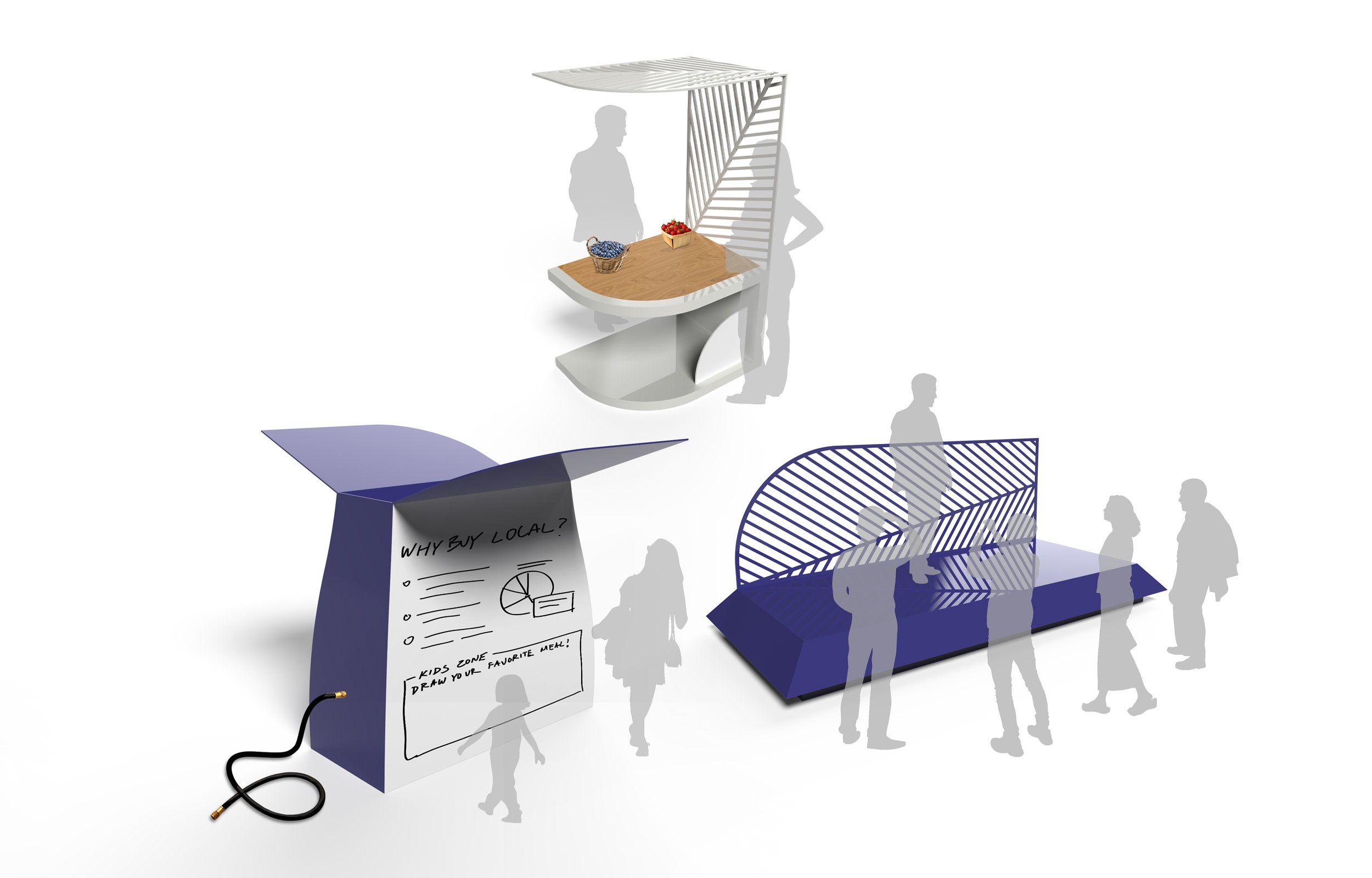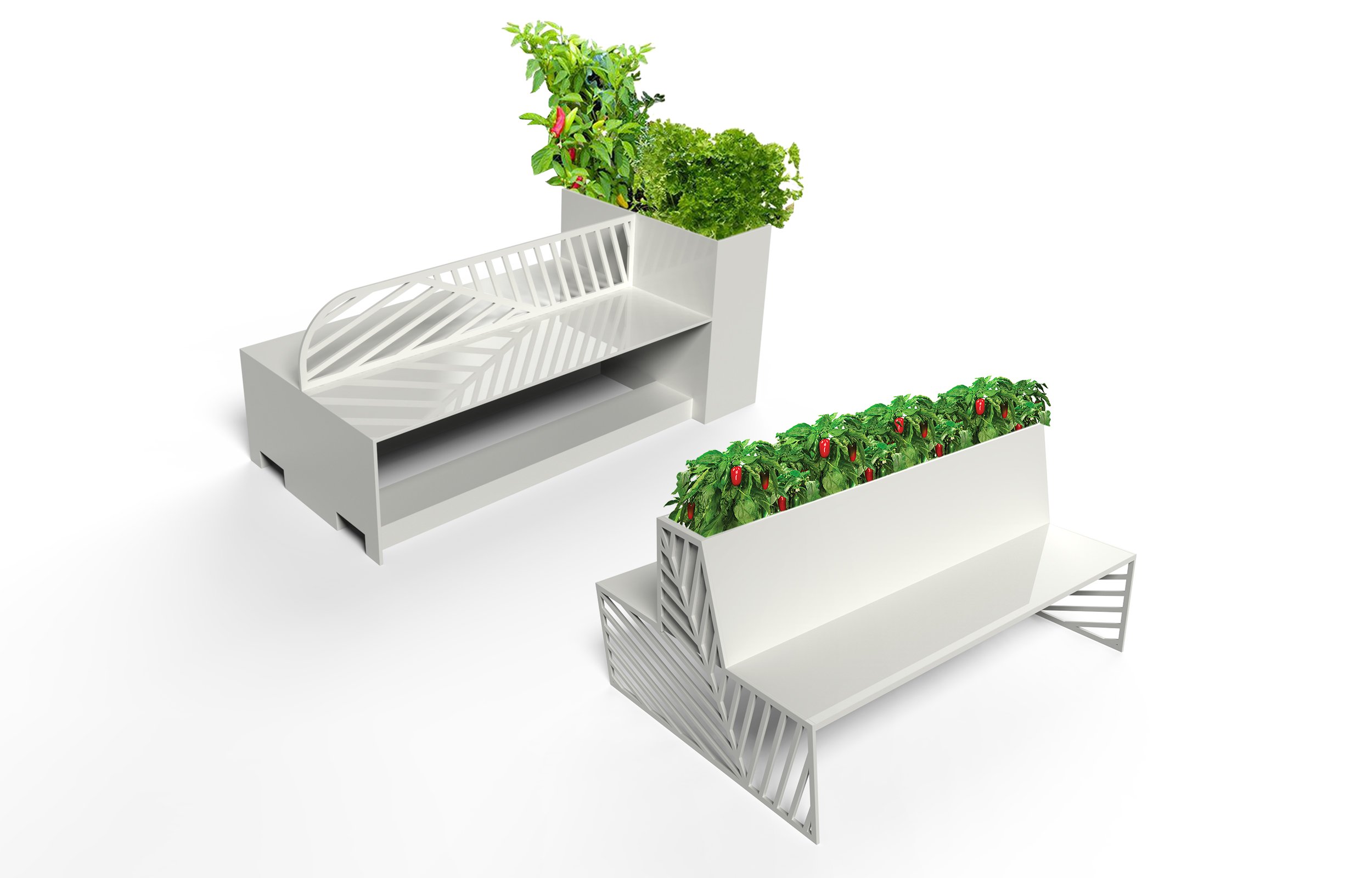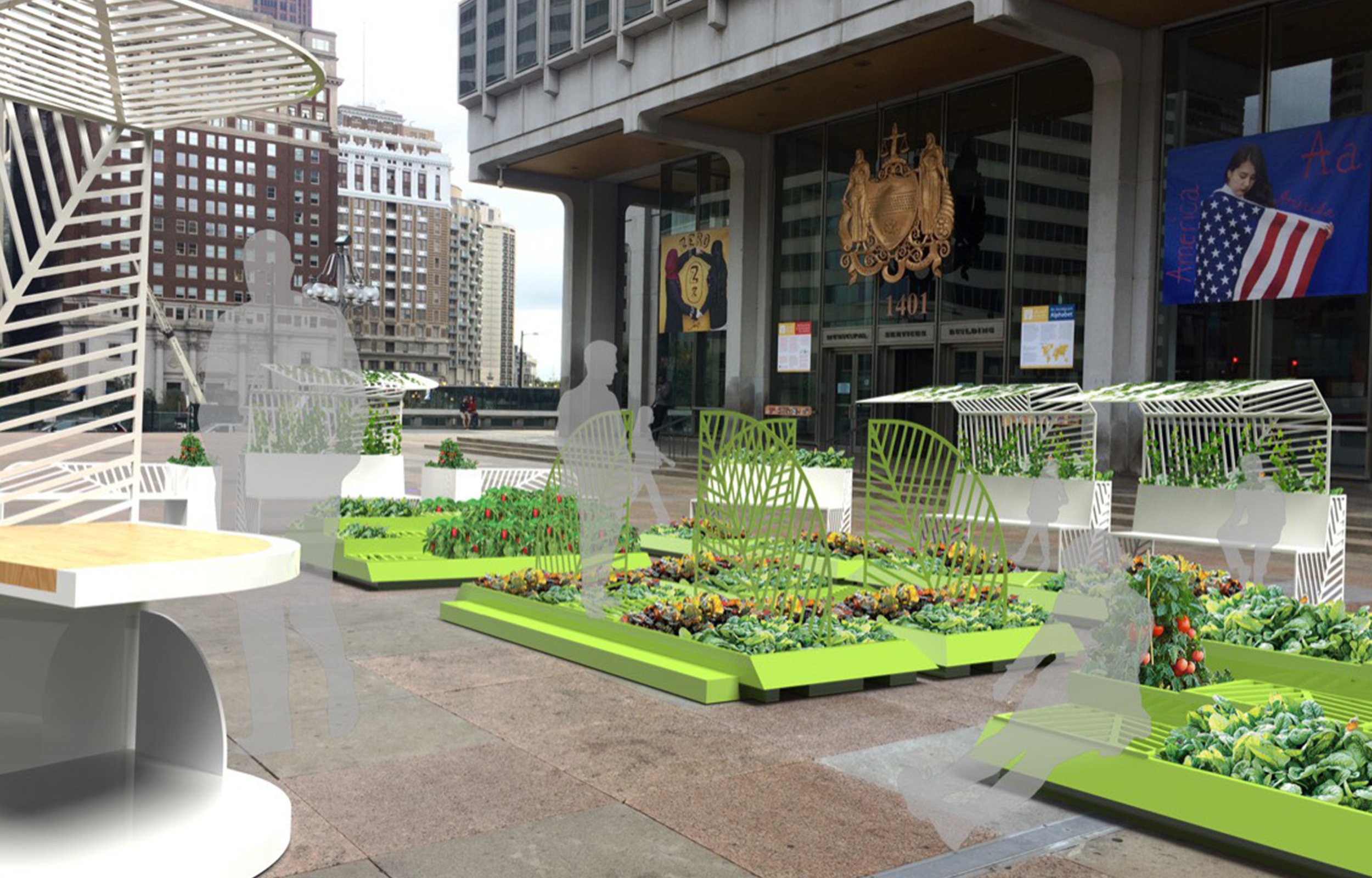Urban Farm Hub.
Harnessing the power of urban farms to engage and educate diverse audiences.
Client: Pennsylvania Horticultural Society
Industry: Public Spaces & Government
Services: Experiential and Visual Design, Sourcing and Manufacturing
Design Brief.
Pennsylvania Horticultural Society (PHS) set out to reimagine farm services under a product and system structure that can be deployed wherever it is needed. In this prototype for the new urban farm, productivity is not only measured in output but in awareness, connection and community. The farm is replicable and scalable for different types of urban settings—especially those where space and other resources may be limited.
Outcome.
FutureTogether designed a proposal for a scalable, modular urban farm system that would produce fresh produce and serve producing and food education platform for underserved communities.
Social Impact.
Universal food access is possible when we create models that showcase the opportunities and benefits to our society. FutureTogether envisioned urban farms as places for education on food literacy and community building—and believe that by sowing, sitting, and eating together, we can have real impact.
Environmental Impact.
The Urban Farm Hubs were designed to produce hyper-local food for urban populations to feed, educate, and alter perceptions about the taste and access to local food. The modules crafted could grow over 1,000 pounds of fruits and vegetables in both horizontal and vertical formats over the course of a few months. Our team incorporated features for watering, filtration, and maintenance while providing maximum accessibility for visitors. Each component included educational features highlighting information about plant origins and growth conditions relevant to visitors. Accessories to make the system user-friendly were also considered—including configurable signage, writing surfaces, demonstration platforms, and plant growth measuring tools.
Community First.
Our proposal defined the new urban farm as a community hub, supported by productive and educational modules, to bring together people through food more intimately. Our programming recommendations guided design, bringing abstract ideas about food accessibility to life. Flexible configuration formats such as demonstration gardens, tasting areas, and farm stands were designed.
Food Security & Education.
A quarter of Philadelphians are food insecure. Our proposal intended to make the hub a beacon—communicating the importance of investing in food security through its intended location next to a city government building. The interactive nature of the modules, tied with programming, would create a place for radical hospitality and impact.






Construction & Maintenance.
To ensure quality and consistency, the Urban Farm Hub was designed to be completely manufactured off-site. The farm was to be made of durable materials such as aluminum and recycled plastic—and constructed with attention to details not traditionally associated with farming equipment. The modules were designed to withstand the elements, daily use, and the operational requirements of the farming crew.
Urban Farm Adoption.
Our team’s desire was to craft a farming system that could be expanded and replicated. We envisioned this proposal as an initial deployment of a series of prefabricated urban farming modules for adoption by educational, governmental, and private institutions.
Links & Press.


